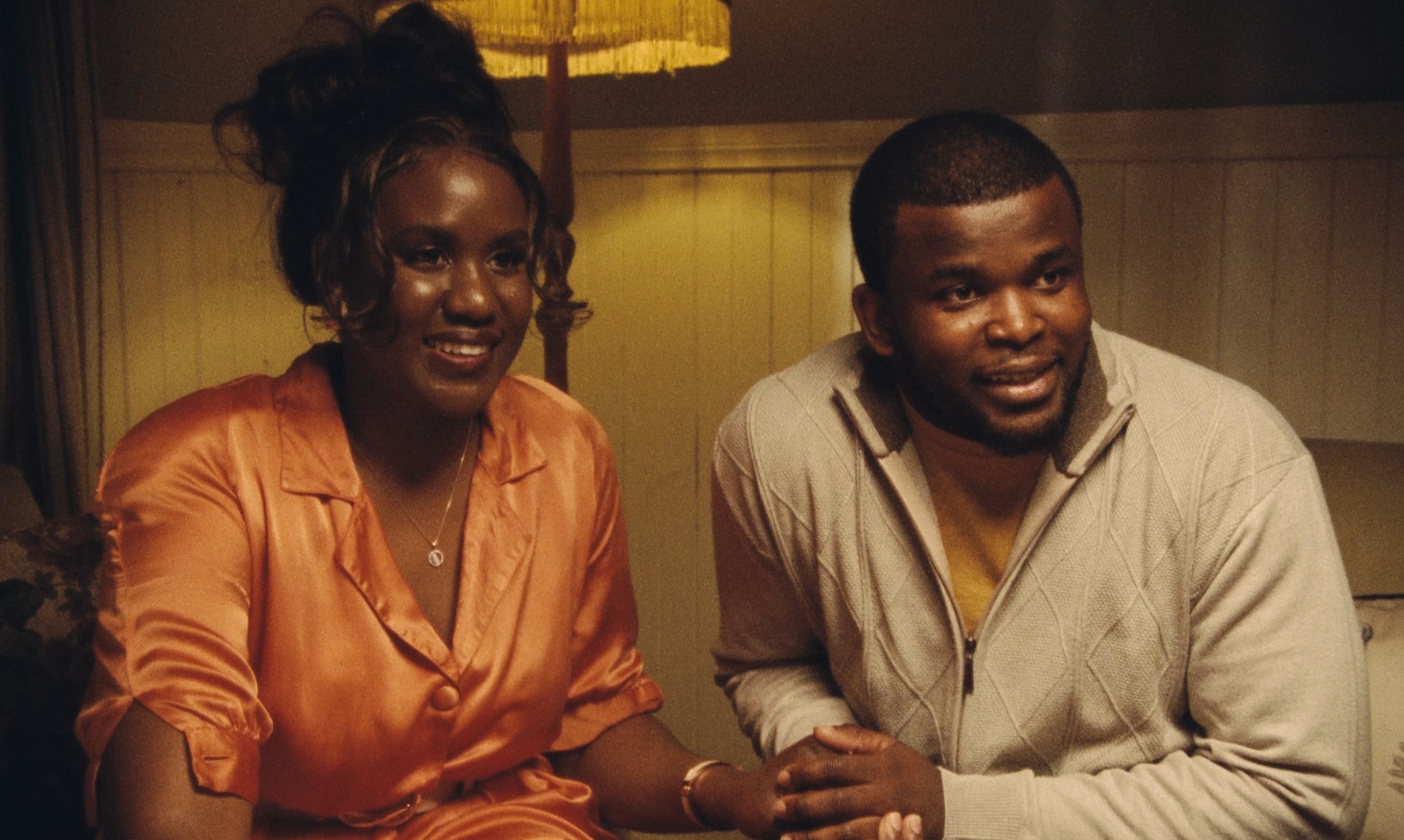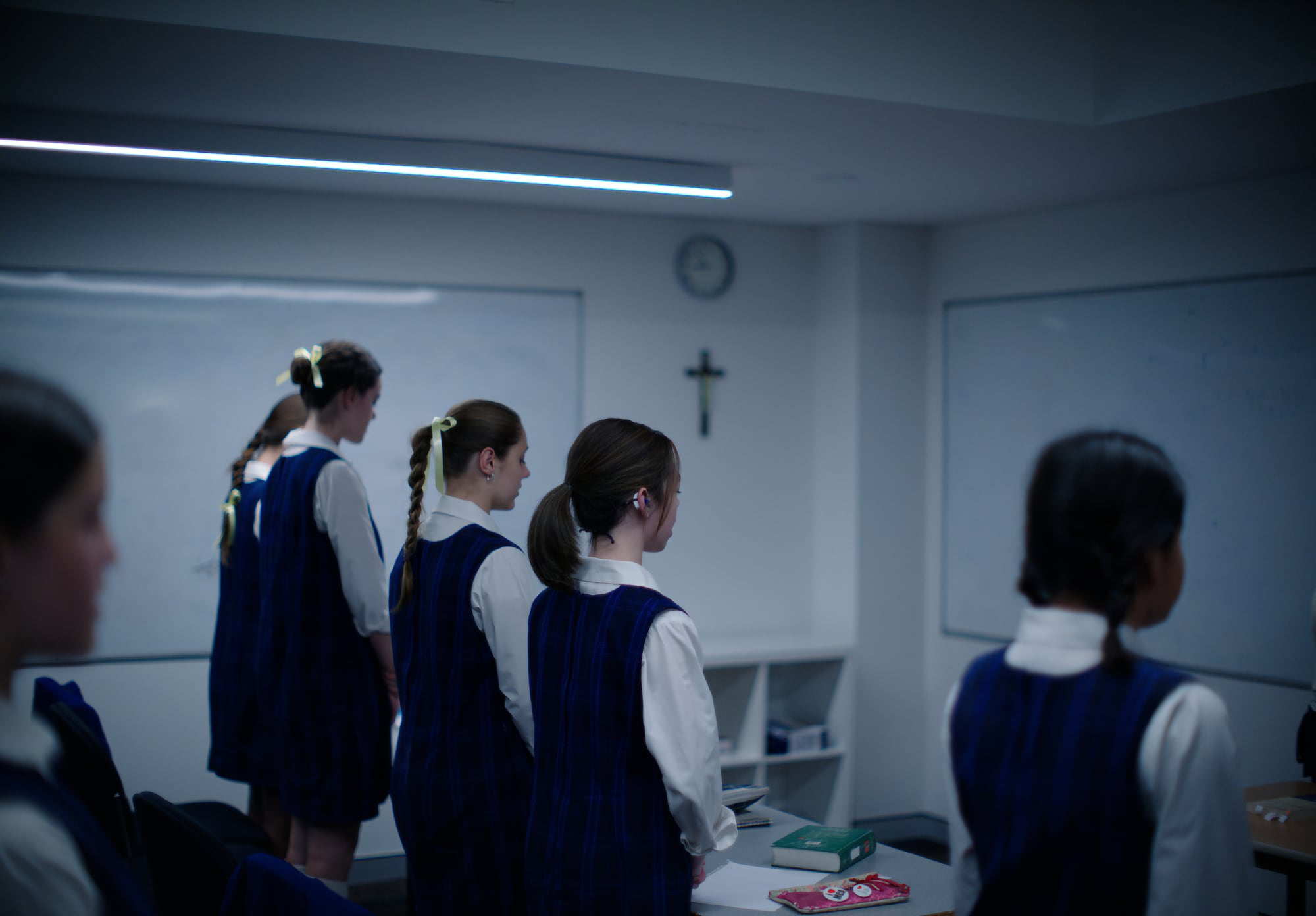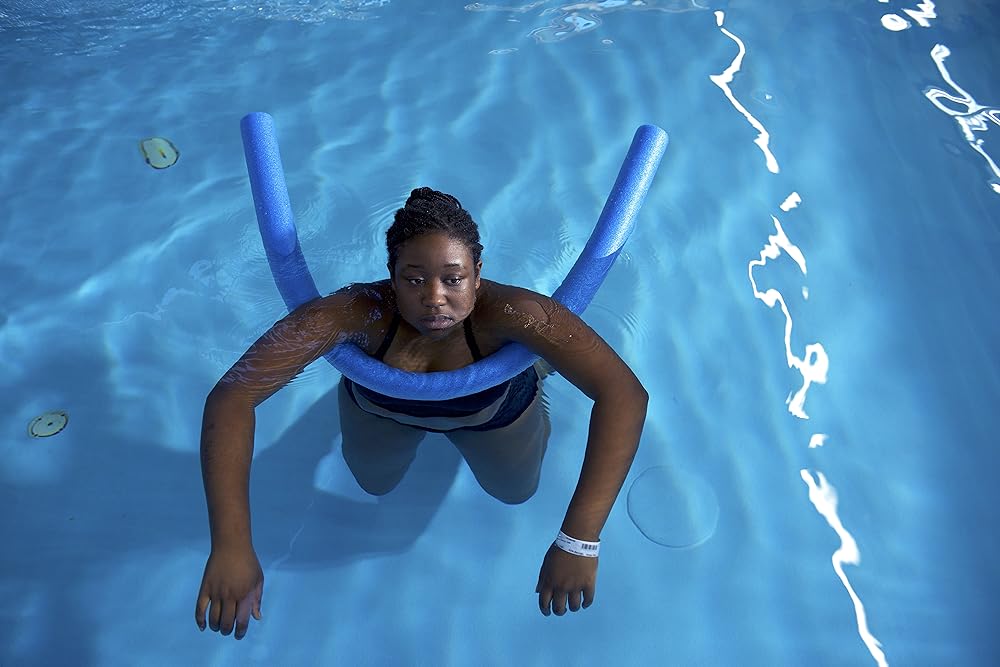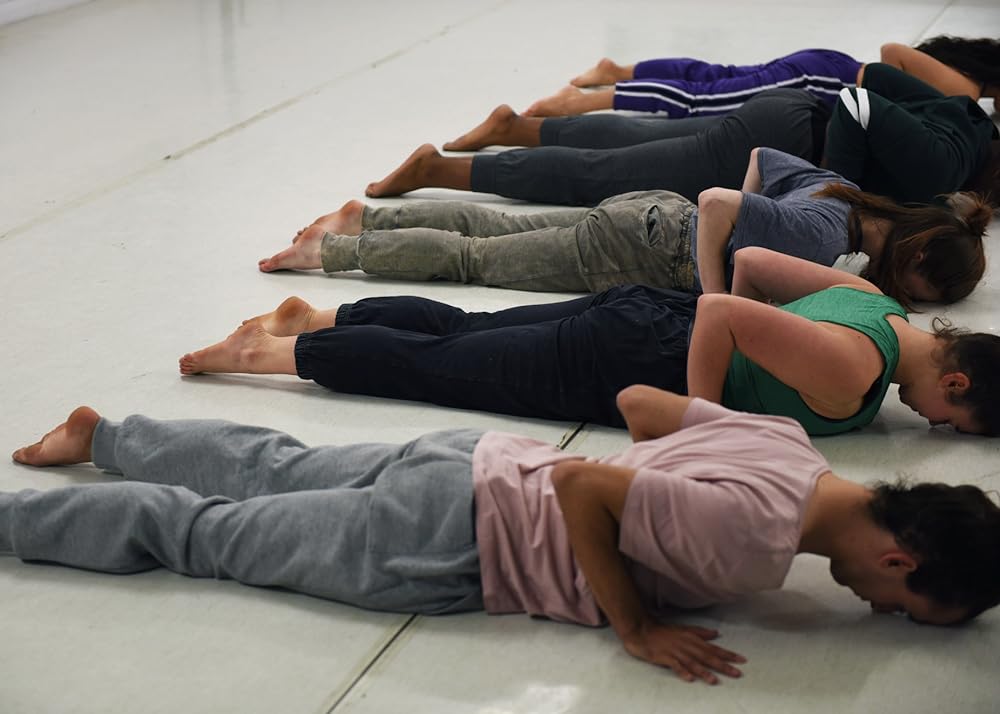Short films can have an ordinary narrative arc like a feature film. Or, they can use their comparatively brief length to tantalise us and leave us in the unknown spaces between clear meaning and a lack thereof. The three dramas we’re previewing today, as the final preview for tomorrow’s ReelGood Film Fest, fall into the latter category.
Particularly troubling in this sense — and we mean that in the best possible way — is Kalu Oji’s What’s in a Name? The nine-minute film starts out in the celestial fantasies of its protagonist, played by Faro Musodza, who looks up into the stars and identifies obscure galaxies with alphanumeric names. Her love for her partner, played by Makwaya Masudi, has left her in this rapturous state that invites comparisons of their relationship to some preordained union between bodies in space. What follows is decidedly more earthbound. During a videotaped interview for a film, he reads too much into her familiar reference to his brother, and we see all is not in fact well.
Oji’s film may seem to spend disproportionate time on what amounts to a semantic misstep, but the incident speaks volumes about the disconnect between fantasy and reality, as well as potentially pointing to a climate of verbal or even physical abuse between these lovers. The filmmaker leaves us on a note of uncertainty, and it’s just where we need to be.
The disconnect from a definite meaning is partly thematic in 14 in February. Victoria Singh-Thompson’s film follows a hearing impaired girl (Amelia Kroehnert) through her daily routines including her attendance at a religious school, where she also receives constructive feedback — and possibly some unconstructive attention — from a teacher (Julian Garner). The director mostly relies on “normal” sound, but occasionally places us in the position of this girl, able to only hear things as if from a distance or underwater. There’s a part of her that is disconnected from her world for sure.
The cinematography by Sam Chiplin and the editing by Lily Davis are both standouts here, as we really get a sense of the parts that make up the whole of our protagonist’s day. However, there are still things here we’re not seeing, things we can only get a sense of through a bit of nuance here, a micro expression there. Singh-Thompson never expounds on the significance of Valentine’s Day to the title, at least textually, but we understand that this young girl with damaged senses may have also suffered injuries to her sense of self, and to her ideas of who may be able to love her under what circumstances.
The damage explored in Charlotte Mars’ Girl and Body is more recent for its protagonist, and possibly something that can be cured, though the uncertainty leaves her shaken. A dancer played by Yuri Nancy Denis suffers a medical episode that is diagnosed as a small stroke, and she has lost the use of one of her legs, at least temporarily. While in hospital, she strikes up a friendship of sorts with the girl in the adjoining bed, played by Olanda Adele Perovic, who seems to be there as much for mental reasons as physical ones. There is also an implied but largely unspoken complexity to the relationship between the dancer and her mother, heard only through a voicemail.
As we watch the dancer struggle to regain some of the motion she previously took for granted, we can tell that something more than the potential loss of her livelihood is troubling her, though Mars smartly withholds what that might be. We get only small gestures of her kinship with the other patient, though in the way good art is capable of doing, the significance to both defies description and comes shining through.
To see these and all the 35 films showing throughout the day in small groups, at the top of each hour, get your tickets to the ReelGood Film Fest here. The event kicks off at 10 a.m. tomorrow at Lido Cinemas in Hawthorn, and will be followed by the announcement of award winners. There are drink specials throughout the day.



